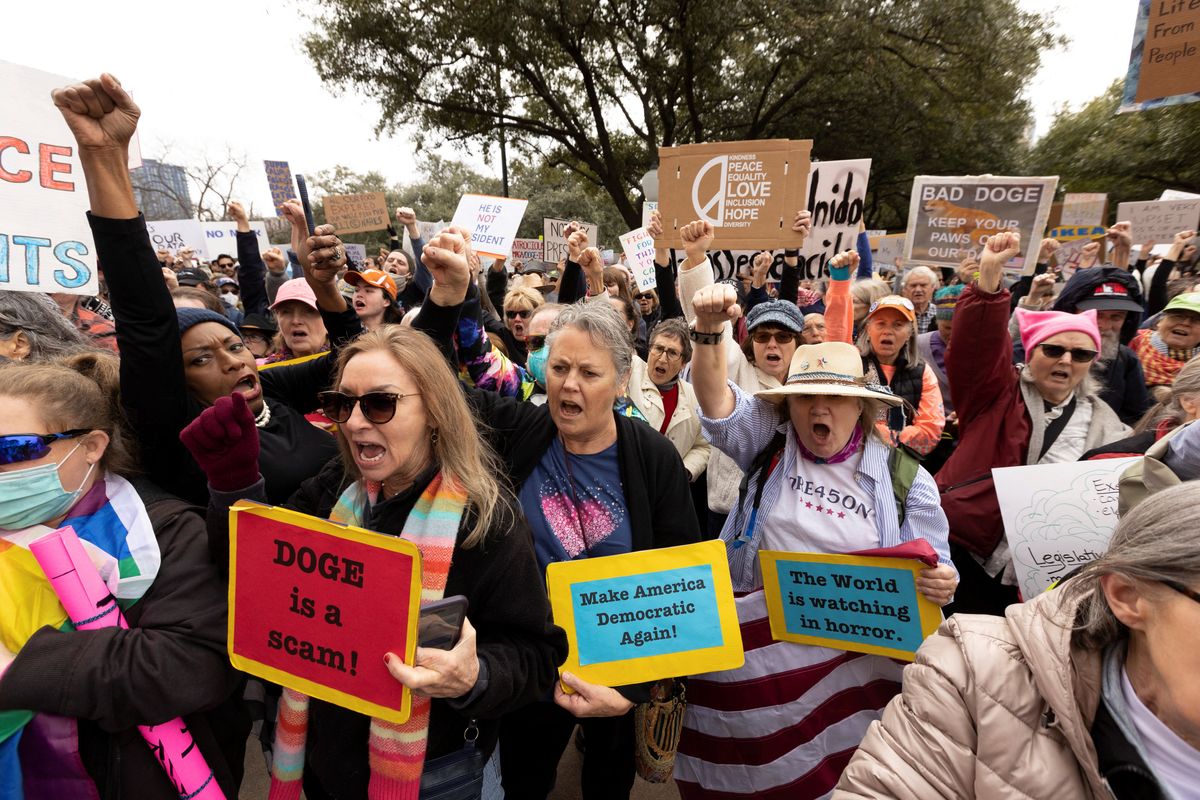
To defeat the Trump administration's dismantling of the civil service, wrote Mary Harris for Slate, there's a break-glass solution that is difficult and legally risky — but could turn up the heat on the president: a massive strike by federal workers, suspending the public sector.
"Like a lot of people, I see the president’s self-coup and think: Is now the time folks hit the streets?" wrote Harris, whose husband was a recent casualty of Trump's move to dismantle the Consumer Financial Protection Bureau.
Democrats will have little leverage when it comes time to negotiate to avoid a government shutdown. But, she wrote, "some have suggested Dems refuse to work with the GOP at all, sending whatever’s left of the government workforce home."
"But given their relatively toothless actions so far, I think Democratic leadership will need their spines stiffened to play hardball. That’s where a strike comes in. Which, in essence, would be the government sending itself home," she added.
There's precedent for this, she wrote. In Wisconsin in 2011, then-Gov. Scott Walker advanced Act 10 to eviscerate the state's public-sector unions.
ALSO READ: 'Gotta be kidding': Jim Jordan scrambles as he's confronted over Musk 'double standard'
"American government workers got so pissed off at the people running things that they called out of work and protested for weeks," she wrote. "They rolled out SpongeBob SquarePants sleeping bags on marble floors that were usually filled with the clacking of legislators’ shoes. They brought in drums and vuvuzelas so they could make themselves loud. They chartered buses to bring in nurses and teachers; corrections officers and cops showed up too. In the end, their ranks swelled to 100,000, maybe more."
Democrats, despite being a minority in the gerrymandered legislature, were empowered by these protests to flee the state, shutting down regular business.
Walker ultimately found a way to force through Act 10, but he was forced to fight for his life in a bruising recall election, and the anti-union legislation is currently facing an existential challenge in state court. Meanwhile, such strikes have had success in other countries, Harris noted: "after South Korea’s president declared martial law, unions pressed for consequences. When an initial effort to impeach the president failed, a strike effort gained steam."
Now, he's facing possible removal in an impeachment trial.
"General strikes" of this kind aren't legal, wrote Harris. They require massive fundraising to support the thousands of workers not getting paid; even then, the workers face punishment for illegal work stoppages. And they are often undermined by outside agitators, and government officials who push misinformation to portray the workers as violent or destructive.
But when they hold the line, she wrote, they can produce results — and it might be the last power workers have right now to save their jobs and their democracy.
"I am floating this general strike idea for a simple reason: Workers are running out of options. Unions are, too. Because if they represent a population of government employees who can be summarily dismissed for political reasons, then who, exactly, are they protecting anymore?" Harris concluded. "The First Amendment still exists. I think it’s time to use it."




